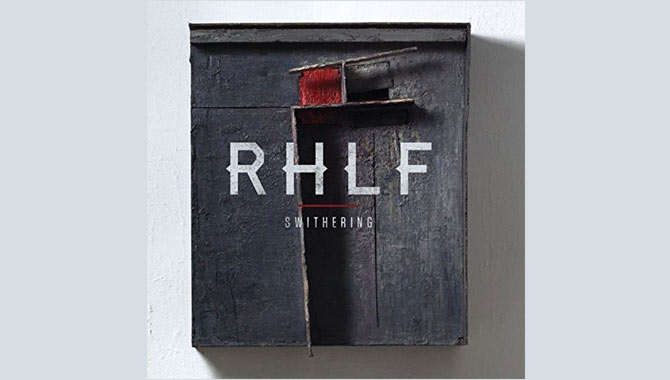Review of Swithering Album by Roddy Hart and the Lonesome Fire
Despite innovations like the Internet and the M6, something seems to have prevented Roddy Hart and the Lonesome Fire permeating south of Hadrian's Wall. Hart is well established in Scottish music, from radio broadcasting to curating at the Celtic Connections Festival. He performed solo from 2007 to 2013, before assembling the Lonesome Fire in 2013. Their second album, Swithering, has the strident, rich, potent sound you would expect from a seven-piece ensemble, and from a producer, Paul Savage, who's worked with Mogwai. Even some of the quieter songs feel loud.

'Swithering' is Scots dialect for wavering about what to do or think. The songs vacillate between strong emotions from one to the next, and songs swither internally, reflecting mental turmoil. The album begins with salvation and gratitude through "Tiny Miracles" ('Unconditionally, you reached out to me/ Before I crashed and burned') and "Berlin" ('You took me in when I needed you most;/ I promise we'll always be close'). Both celebrate the power of redemption from the love of a person, or the security of a place, suffused with Simple Minds, the Killers and U2 (replacing Bono with Prefab Sprout's Paddy McAloon). The final track, "We're the Immortals", quietly celebrates comradeship and revelry - 'Drinking the pink summer air' - and the carefree timelessness it brings.
Guitar blasts and close harmonies of "In the Arms of California" make you expect Black Francis' voice at the start. You tread the optimistic 'Berlin' path, before realising that the absence of place is key here, with little hope of return. "Violet", the album's Lloyd-Colesque first single, bleeds with loss and regret. It asks the absent Violet, "Were you lost, or just looking?" The addressee seems a victim of mental illness, the lyrics and the touching, wistful violin expressing the futility and sorrow of a helpless onlooker. "Strange Addictions", showing the influence of Springsteen, continues the motif with the debilitating nature of our mind's quirks and demons, whilst "I thought I Could Change Your Mind" depicts a recently-desolated masculine ego.
It's refreshing when you can tell where a band comes from (except for the Wurzels) and this album is as noticeably Caledonian as a pair of deep-fried Proclaimers. There are a few stodgy lyrics here and there in search of a rhyme, but the vitality and intensity of sound that the band generates, in particular, make them deserving of more kudos nationally than they currently receive. Radio 2 should be all over this lot.






![Luke De-Sciscio talks to us about having the courage to be yourself, forgiving that which is outside of one's control and following whims [EXCLUSIVE] Luke De-Sciscio talks to us about having the courage to be yourself, forgiving that which is outside of one's control and following whims [EXCLUSIVE]](https://images.contactmusic.com/images/home/homepage/luke-de-sciscio-abof-a.jpg)

